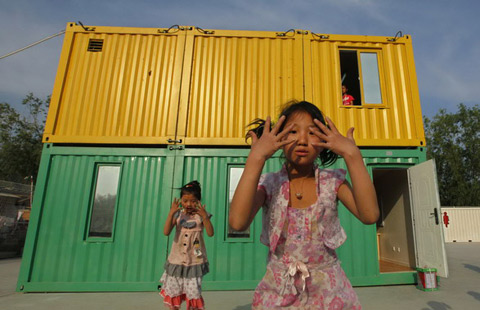Manila's scheme abuses law
Updated: 2014-04-01 07:42
By China Forum (China Daily)
|
|||||||||||
The Philippines' groundless filing for international arbitration concerning the South China Sea disputes will prove futile
Editor's Note: The following is a translation from Chinese of a commentary in People's Daily.
In disregard of the Chinese government's position of neither accepting nor participating in international arbitration relating to the South China Sea disputes, the Philippine government unilaterally submitted to the arbitral tribunal on March 30, 2014, a so-called memorial. Besides, the Philippines has also used the mass media to hype up its submission, making false accusations against China by distorting the facts and misinterpreting international law. The Chinese government naturally had to reject the Philippines' claims on completely legitimate ground. The Philippines' political calculation to pressure China by abusing procedures of international law is doomed to failure.
Why does China not accept the Philippines' unilateral filing for international arbitration?
On January 22, 2013, the Philippines informed China, through a note verbale, that it was submitting its disputes with China relating to the South China Sea to the compulsory dispute settlement procedures under the United Nations Convention on the Law of the Sea (UNCLOS). In response, China repeatedly pointed out that the core of the China-Philippines disputes relating to the South China Sea lies in the territorial disputes over some islands and reefs of the Nansha Islands and overlapping claims of jurisdiction over some sea areas. Given that territorial disputes are not subject to UNCLOS in terms of interpretation or application, the UNCLOS compulsory dispute settlement procedures do not apply hereinto. Regarding the two countries' overlapping claims on some areas of the South China Sea, China, as a Contracting Party to UNCLOS, made a declaration back in 2006, which excluded disputes on maritime delimitation and historic title or rights from the compulsory dispute settlement procedures, in accordance with relevant provisions concerning optional exceptions. Therefore, without China's consent, the Philippines must not unilaterally submit its disputes with China to international arbitration on such issues as maritime delimitation.
As is known to all, the islands in the South China Sea, including the Nansha Islands, have been China's territory since ancient times. After the end of World War II, acting in accordance with a series of postwar international documents, the Chinese government recovered these islands and reefs from the Japanese aggressors in 1946. For a long period of time after WWII, countries, including the Philippines, all recognized or raised no objection to China's sovereignty over the islands and reefs in the South China Sea. It was not until the 1970s that the Philippines began to covet the Nansha Islands and brazenly occupied some of the islands and reefs. These acts of occupation gravely violated the United Nations Charter and the basic norms governing international relations. The Chinese government has always firmly opposed these occupations and has demanded on numerous occasions the Philippines withdraw from the Chinese territory it occupied. However, instead of correcting its offenses, the Philippines has made a further provocation by initiating an international arbitration process, which is unjustified, illegal and despicable.
Related Stories
Manila's move cannot resolve dispute 2014-03-31 07:30
Beijing sees hidden agenda in Manila's S. China Sea protest 2014-02-27 07:20
Beijing brushes off Manila's outcry on water cannon use 2014-02-26 07:16
Manila makes misguided move 2013-09-07 08:29
Today's Top News
Partnership with Belgium, EU highlighted
Turkish PM wins local elections
Monday's search for MH 370 resumes: AMSA
Families of flight MH370 passengers 'need closure'
Greece passes new reform bill
Dobass demonstrators demand referendum
MH370 relatives demand answers
Turkey starts local elections
Hot Topics
Lunar probe , China growth forecasts, Emission rules get tougher, China seen through 'colored lens', International board,
Editor's Picks

|

|

|

|

|

|





